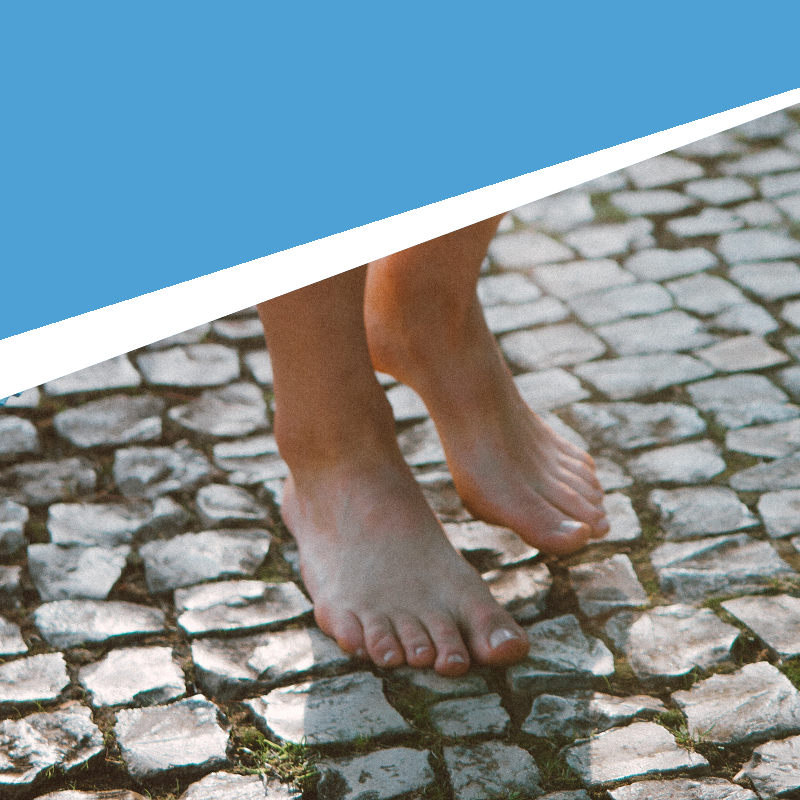This is when the toenail grows into the skin surrounding the nail. It is a very common problem which can occur at any age but tends to occur more commonly in children and young adults… As if teenagers don’t have enough to deal with!!
The cause is very often due to poor nail cutting. Cutting down the sides, cutting them too short, into an irregular shape…….or picking at them! Whichever it may be, a shard of thenail is likely to be left behind. As the nail gradually grows the shard of nail pierces the skin creating an inflammatory response which causes redness, swelling and plenty of discomfort and pain as well as creating an open door for bacteria to come in and complicate things further!
An injury to the nail, fan-shaped nails, involuted nails, sweaty feet, tight shoes or hosiery and footwear with no support are amongst the many risk factors.
So, here are some tips for avoiding an ingrown toenail!
- Cut nails straight across. Simply file any edges with an emery board file.
- Always leave a little of the free edge of the nail showing. Avoid cutting too short.
- Resist the urge to Pick!
- Ensure your hosiery and footwear are allowing free movement of your toes.
- Choose footwear with support and low heel height. Avoid High heels and Slip ons!
- Treat excessive sweating, wash feet regularly. Choose cotton hosiery if possible, it is more absorbent.
- Where possible choose footwear made from natural materials like soft Leather.
- Wear protective footwear or silicone protectors for toes during activities likely to cause injuries to the nails such as running, hiking or dancing.
- Resist bathroom surgery!!! Attempting to remove the ingrowing nail yourself or using unsterilised instruments will increase your risk of infection and complications.
Where do we come in? Podiatrists can certainly help you here. We can offer you a general check-up of your toenails to help you prevent this condition occurring in the first place, or if you suspect you already have an ingrown toenail we can get to work on it straight away to relieve your discomfort so you can get back to your normal day to day as soon as possible. A Podiatrist is very skilful at removing ingrown toenails keeping the risk of infection to a minimum.
The question you may be asking is if you will need nail surgery? The answer is, not necessarily! Surgery is usually last resort. We encourage the nail to grow normally again by removing the irritating shard of the nail, treating any infection and packing the sides with cotton wool to help the nail grow properly again. This very often is all that is needed. Good self-care and regular check-ups with your Podiatrist will further reduce your chances of recurrence. However, surgery may be required in some cases where the problem keeps recurring or if the benefits of surgery are greater.

Nail surgery is a simple day case procedure carried out under local anaesthesia. Usually, only the ingrowing part is removed and a chemical called Phenol is applied to stop regrowth. If you have a condition such as Diabetes or suffer from conditions that affect your immune system you should urgently see a Podiatrist if you suspect you have an ingrown toenail, so that the risk of complications is minimised.



